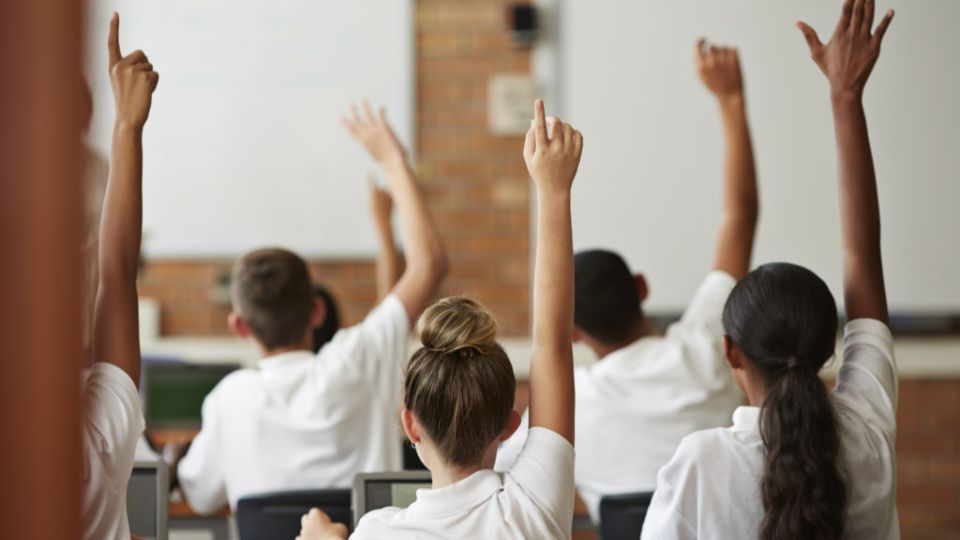Several states are considering new legislation that would grant teachers increased authority to remove students from the classroom for misbehavior. However, education experts are expressing concerns about the potential negative consequences this move could have on students.
Last month, the Alabama state house approved legislation that implements new policies for removing students from classrooms. This move aligns with the trend seen in several states, which have adopted stricter measures in response to an increase in student misbehavior during the pandemic.
A bill known as SB157, commonly referred to as the Teachers Bill of Rights, has successfully made its way through the Alabama legislature and is currently awaiting the signature of Gov. Kay Ivey. Once approved, it will take effect in the upcoming school year.
Before the legislation, administrators were responsible for handling suspensions and other removals, rather than the teachers themselves.
In the past year, a number of states, such as Virginia and West Virginia, have implemented or proposed policies that resemble Alabama’s policy, which grants teachers the authority to remove students they deem disruptive from the classroom.
According to research conducted by the Children’s Equity Project at Arizona State University, it was found that in 2023, a minimum of 40 states had implemented exclusion policies for defiant or disruptive behavior in various ways.
Education experts have raised concerns about the effectiveness of removing students from class as a disciplinary measure. They argue that this approach fails to address the underlying causes of unruly behavior and can contribute to the school-to-prison pipeline. Additionally, these policies have been found to disproportionately impact Black students throughout history.
Richard Welsh, an associate professor of education and public policy at Vanderbilt University, explained that the recent developments in Alabama are consistent with the trend seen in many states following the pandemic. These developments involve implementing stricter policies and granting teachers more authority, all in the name of safeguarding their well-being.
Teachers at a ‘breaking point’
The Alabama legislation was heavily influenced by the Alabama Education Association, the state’s largest teacher’s union. In a recent statement, the union highlighted the concerning issue of classroom disruption, which has unfortunately resulted in instances of verbal and physical abuse by students. The union expressed their disappointment with the perceived lack of action taken by school administrators to address this problem.
Teachers expressed their concerns to lawmakers, stating that they were reaching a breaking point and that valuable instructional time was being lost due to disruptive students, as reported by the Alabama Reflector.
Also Read: Check These Most Dangerous Neighborhoods In Knoxville For 2024
The Landscape of Exclusionary Policies
According to a recent report, a total of 151 bills concerning discipline were passed in 41 states between 2019 and 2022. According to education experts interviewed by NewsNation, a number of states have recently reversed their restorative justice policies and instead implemented more punitive legislation.
In the wake of the pandemic, schools nationwide have witnessed a significant increase in disruptive behavior within their classrooms, leaving educators grappling with the challenge of effectively addressing student misconduct.
“Students faced challenges upon returning to schools, missing out on crucial in-person learning opportunities that teach them important social skills, how to navigate school environments, how to remain attentive in class, and how to handle frustration,” explained Rachel M. Perera, a fellow at the Brown Center on Education Policy at Brookings Institute.
Implications of These Punitive Policies
Removing a disruptive student may seem like a convenient solution for teachers dealing with unruly behavior. However, extensive research has revealed that repeatedly excluding students from school has resulted in a range of negative consequences.
According to Perera, exclusionary discipline has been found to have negative consequences such as increased risk of academic failure, decreased attendance, and declining graduation rates. These factors can contribute to the creation of a school-to-prison pipeline.
“Many experts believe that the increase in behavioral issues among children may be exacerbated by their academic struggles. Unfortunately, the current situation is likely to further worsen these problems,” she expressed.
According to Welsh, a significant aspect to consider is that these decisions can be highly subjective. This implies that a teacher’s personal judgment will influence how they perceive disruptive behavior.


Leave a Reply